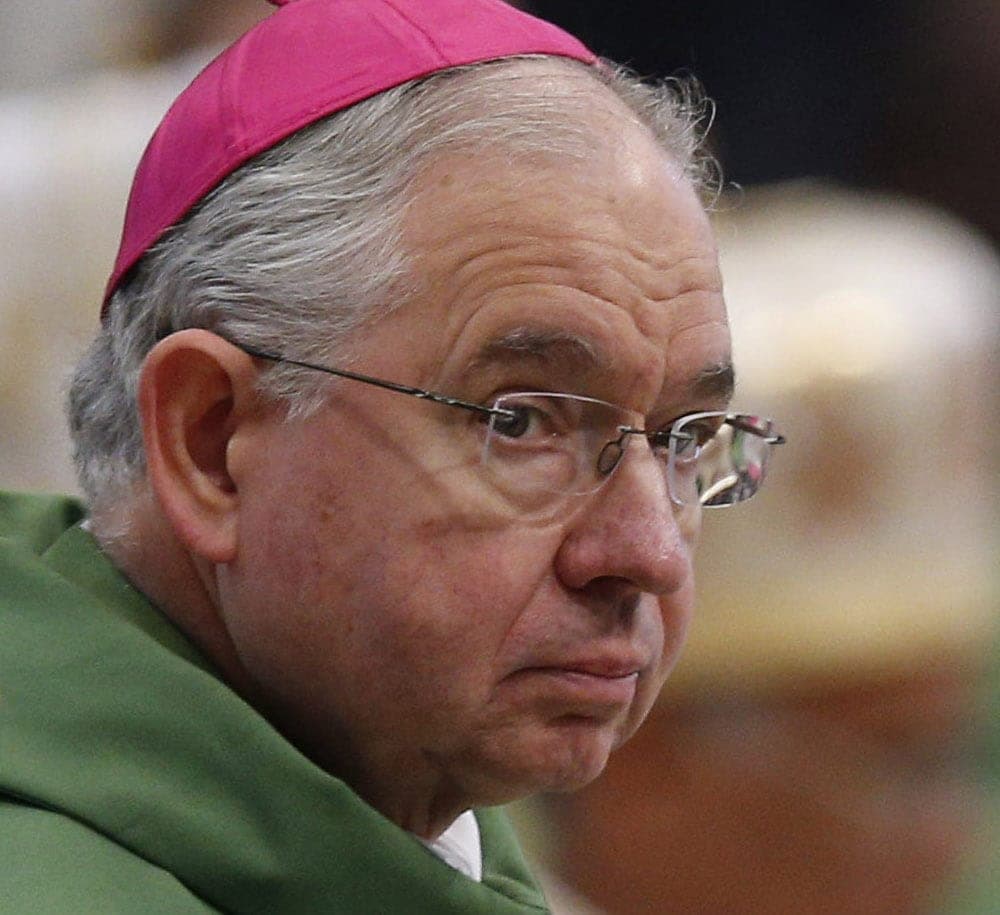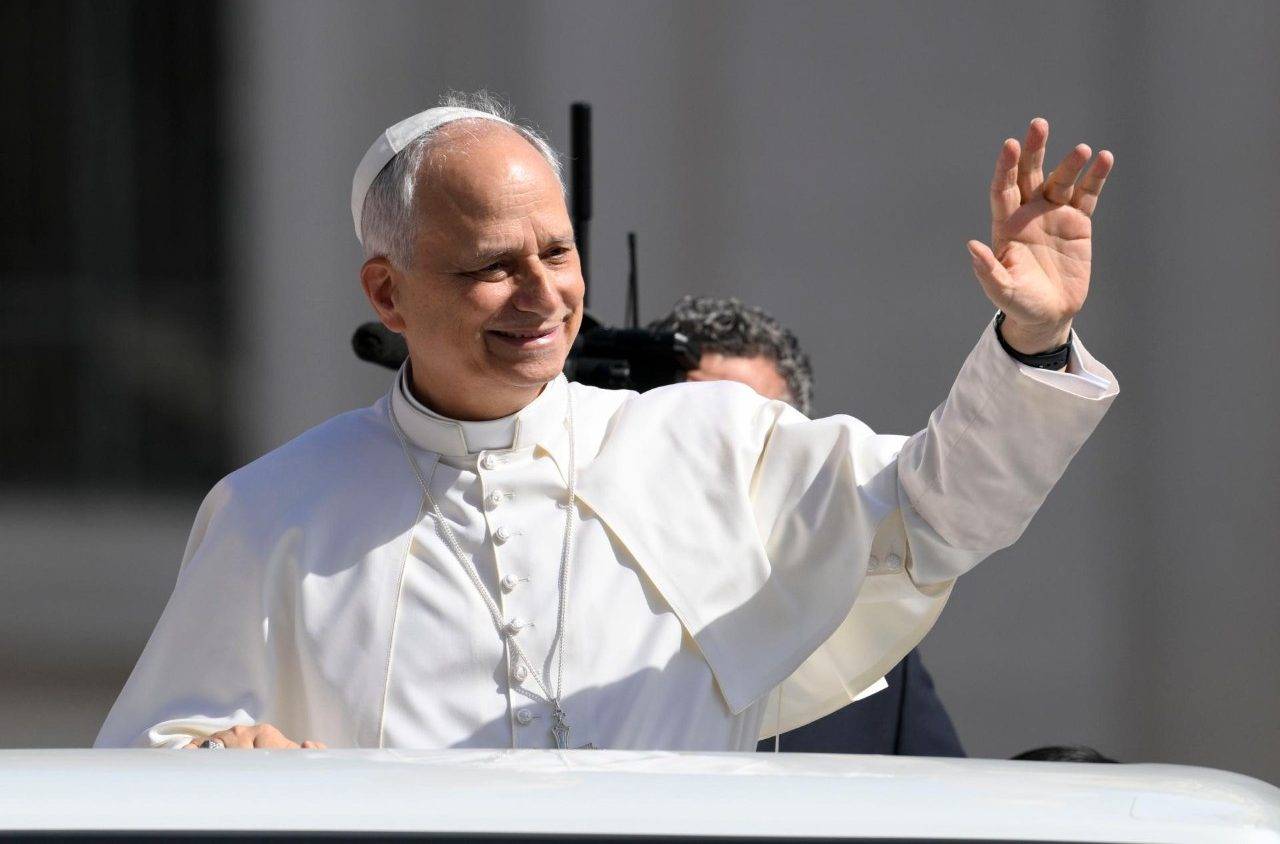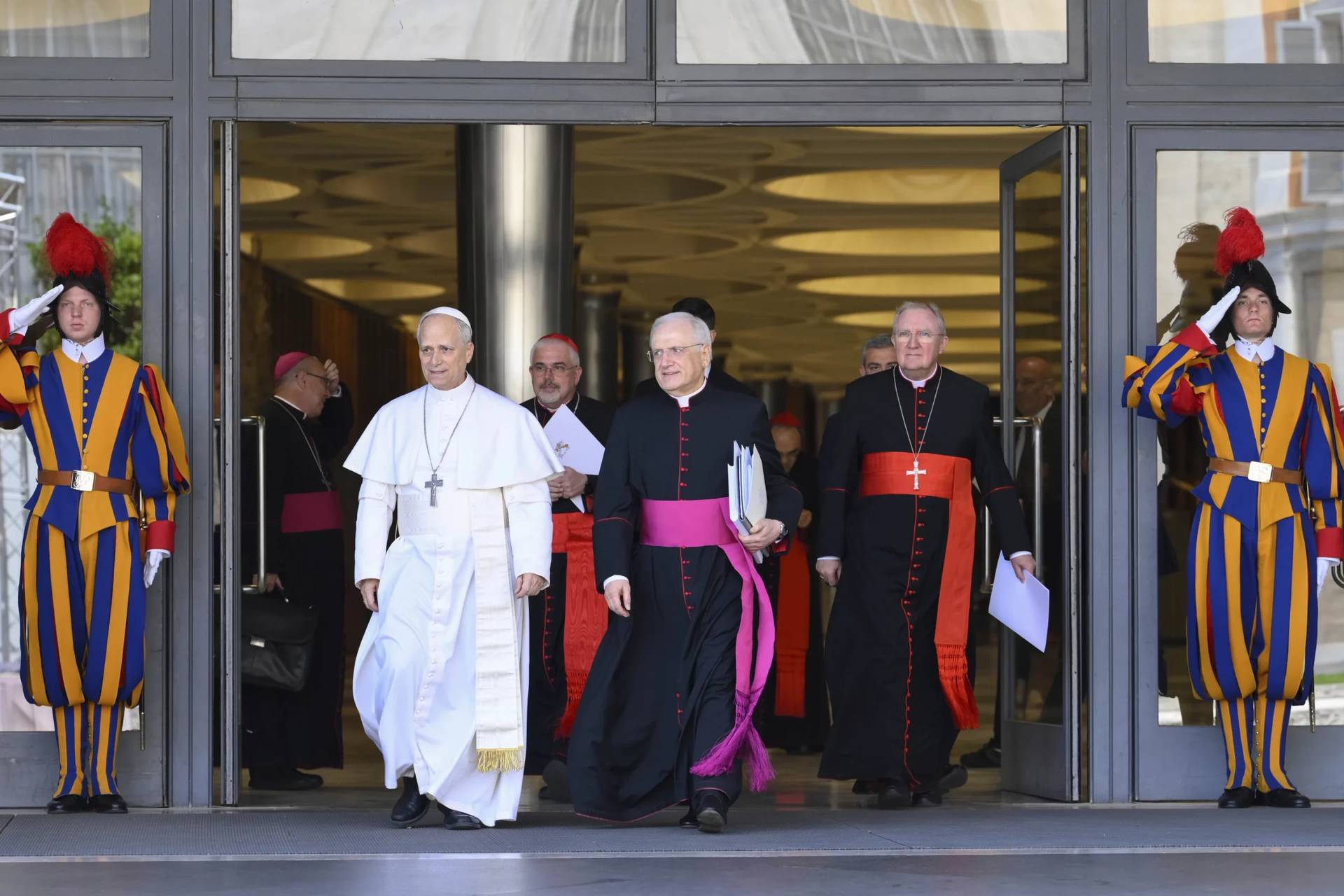With the Donald Trump presidency we’re in a through-the-looking-glass moment in America, in which the previously implausible on multiple fronts has become the new normal. That includes the political profile of the U.S. Catholic bishops, and perhaps no one illustrates the point better than Archbishop José Gómez of Los Angeles.
On Wednesday of this week, Gómez was in Washington to speak to a symposium of the Napa Institute, which would generally be considered one of the leading forums for conservative Catholic thought in the country. His topic, however, was anything but a standard conservative canard: why immigration reform needs to happen now.
“Immigration is close to my heart, and immigrants have always been at the heart of my ministry for nearly 40 years as a priest and now as a bishop,” Gómez told the group.
“Immigration is also deeply personal for me,” he said. “I was born in Monterrey, Mexico and I came to this country as an immigrant. I have relatives who have been living in what is now Texas since 1805, when it was still under Spanish rule, so my immigrant roots run deep.
“I feel like our great country has lost its way on this issue,” Gómez said. “In my opinion, immigration is the human rights test of our generation.”
From there, Gómez went on to pick apart the usual arguments offered for immigration crackdowns, pointing out, for instance, that “the vast majority of those we are deporting are not violent criminals.
“Nobody disputes that we should be deporting violent criminals,” he said, “nobody. People have a right to live in safe neighborhoods. But what is the public policy purpose that is served by taking away some little girl’s dad, or some little boy’s mom?“
His bottom line was that comprehensive reform is long overdue, and he left little doubt that he doesn’t believe the moves of the Trump administration so far are coming anywhere close to accomplishing it.
If one knew nothing else about Gómez, it might have been tempting to conclude that he’s a fairly typical center-left, peace-and-justice style Catholic, very much in keeping with the ethos of the Pope Francis era.
The comedy is that for most of his career, Gómez actually has been known as a strong conservative.
In part, that’s because he’s a member of Opus Dei, a Catholic organization with a profile of being conservative both on matters of theology and secular politics, at one point serving as the group’s vicar in Texas. In part, too, it’s because he began his episcopal run as a protégé of Archbishop Charles Chaput, then of Denver and now of Philadelphia, who’s considered a hero by the conservative wing of the American church and something of a bête noir to liberals.
I recall vividly that when Gómez was named the Archbishop of San Antonio in 2004, succeeding the charismatic Archbishop Patrick Flores, considered a hero on civil rights, there was fear among more progressive elements of the local church that Gómez would lead some kind of purge. The same thing happened in 2010 when he was named to Los Angeles, following the more liberal Cardinal Roger Mahony.
There certainly were moments along the way that reinforced those impressions. In 2008, for instance, he went public with his unhappiness that St. Mary’s University in San Antonio was hosting Hillary Clinton, who at the time was on the campaign trail.
“Catholic institutions are obliged to teach and promote Catholic values in all instances,” he said. “This is especially important when people look to our Catholic universities and colleges to provide leadership and clarity to the often complicated and conflicting political discourse.
“Our Catholic institutions must promote the clear understanding of our deep moral convictions on an issue like abortion, an act that the Church calls ‘an unspeakable crime’ and a non-negotiable issue,” he insisted.
Not exactly the rhetoric, in other words, of your typical liberal.
Recently I sat down with Gómez during the annual Los Angeles Religious Education Congress for a video segment for Crux, and asked him if he ever finds it bizarre that people used to consider him an arch-conservative and now many see him as a flaming liberal.
“It’s surprising,” he conceded.
“It’s hard for people to understand that the Catholic Church cares about both sides of the political aisle. The tendency is to give a label to people, like we’re on this side or the other side,” he said, agreeing that in reality, he’s basically the same guy he’s always been.
Here’s the thing: In some important ways, José Gómez is what most Americans would regard as a “conservative.” One of his points of emphasis over his bishops’ career has always been catechesis, believing that people need to be better educated in the basic principles of the faith. He’s mostly by-the-book when it comes to issues such as doctrine and liturgical practice, and he’s nobody’s idea of a wide-eyed reformer.
Yet he also believes deeply in the Church’s teaching on issues such as immigrants, refugees and the poor, and is fully supportive of Pope Francis’s leadership on those topics.
In other words, Gómez illustrates a core insight about Catholic social teaching: It’s just not a good fit for the binary dynamics of American politics, and whether its exponents appear “conservative” or “liberal” generally has more to do with the questions being thrown up by the culture in any given moment than with what these people truly believe.
The good news is that Archbishop José Gómez doesn’t appear terribly worried about whether he strikes people as leaning left or right. He’s forging ahead, flinging down a clear Catholic gauntlet in defense of America’s immigrant population.
“As a pastor, I do not think it is an acceptable moral response for us to say, ‘too bad, it’s their own fault,’ or ‘this is what they get for breaking our laws.’ They are still people, still children of God, no matter what they did wrong,” he told the Napa symposium.
“When you look into the eyes of a child whose parent has been deported — and I have had to do that more than I want to — you realize how inadequate all our excuses are.”
Given the politics of the Trump era, that’s probably more than enough for some to style Gómez as a mouthpiece for the left. Whatever people may make of it, however, he doesn’t seem inclined to stop saying it.













